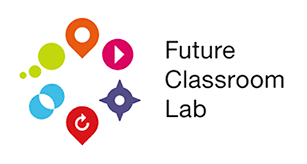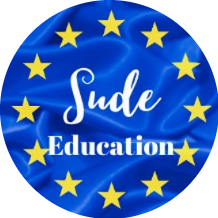
FUTURE CLASSROOM LAB
80 EUR per day/participant
Language = English Certificate = Yes
Duration = 5 – 7 Days Location = Antalya / TÜRKİYE
The Future Classroom Lab (FCL) is an innovative learning environment designed to explore and showcase how technology can be effectively integrated into education. It serves as a testing ground for new teaching methodologies, educational tools, and learning spaces that foster creativity, collaboration, and engagement among students.
Learning about the Future Classroom Lab is essential for several reasons:
Innovative Teaching Practices: FCL encourages educators to explore innovative teaching methods and technologies that enhance the learning experience for students.
Technology Integration: It provides insights into how technology can be seamlessly integrated into the learning process, making education more interactive and effective.
Student-Centered Approach: FCL emphasizes creating student-centered learning environments, enabling educators to tailor lessons to meet the diverse needs of learners.
Preparation for the Future: Understanding and implementing FCL principles prepares educators for the rapidly evolving technological landscape in education, ensuring they stay relevant in modern classrooms.
Enhanced Engagement and Collaboration: It promotes active engagement, collaboration, and critical thinking skills among students through interactive and immersive learning experiences.
In essence, learning about the Future Classroom Lab equips educators with the knowledge and skills necessary to create dynamic, technology-enhanced learning environments that empower students and prepare them for the challenges of the future.
OBJECTİVES
• Developing critical thinking skills: students learn how to find quality resources and how
to manage information.
• Developing problem-solving skills: students have a goal or a challenge to resolve. The
challenge/question is set by the students themselves. This builds on their strengths,
potentials and preferences.
• Learners become active researchers: research across varied media (text-based, video,
audio, images, results of experiments, numbers, etc.) is the basis of the classroom
activity. Investigation can take place by reading, observing, conducting science
experiments, organising surveys, using robots, etc.
• Encouraging cross-curricular projects: learning across disciplines helps learners to
analyse and understand things from multiple perspectives.
• Learning by exploring: students can construct models, test ideas and evaluate the results
themselves. The technology provides different ways for the learners to get involved
through hands-on learning activities.
• Connecting with the outside world: rather than working within the artificial boundaries
of a school subject, the teachers and students select real-life challenges and data to investigate
Preparation
Before the course,
– Participants fill in a detailed questionnaire before the course, indicating their level of experience, teaching background and training.
– They also prepare a presentation reflecting their teaching method.
DAILY SCHEDULE OF FCL
DAY 1
Ice-breaking activities and introduction of the course program
Individual expectations
Knowing each other – Presentation of participants
What is Future Classroom Lab? What does the future classroom look like?
Your future classroom – towards a realistic vision
From vision to reality – technology in your future classroom
Characteristics of 21st-century learners
21st century learners’ skills, needs, and interests
– Learning and innovation skills
Digital literacy skills (Seven skills of the 21st century
Critical thinking and problem solving
DAY 2
EXPL
Some good examples of future classroom labs
Future Classroom Lab Learning Zones
Investigate
Key points for Investigate
DAY 3
Create – Key points for Create
Creating a multimedia production or a presentation.
Present – Key points for Present
DAY 4
Interact – Key points for Interact
Rearranging physical space
From spectators to active learners
Interacting with the learning content
computing for a motivated classroom:
From supervision to communication:
Exchange – Key points for Exchange
Peer-to-peer collaboration
• Teamwork for better inclusion
• Learning by playing
• Collaborating online
• Letting ideas fly
Develop -Key points for Develop
Allowing for an informal environment
• Supporting motivation and self-expression
• Using personal learning devices
• Adopting ways to recognise informal learning
• Flipped classroom
• Learning through play
DAY 5
Plan your FCL
– Present your plan
– Group work: Physical communication
Overview of the course program
Evaluation of the course program
Filling in the feedback forms
Europass Mobility certificate, certificate of participation
METHODOLOGY
The methodology of the Future Classroom Lab (FCL) revolves around creating an innovative and learner-centered educational environment through the integration of technology. Here are the key aspects of its methodology:
Active Learning: FCL emphasizes active engagement and participation of students in their learning process. It encourages hands-on activities, group discussions, problem-solving tasks, and collaborative projects rather than passive reception of information.
Technology Integration: Central to FCL is the effective use of technology in education. It involves integrating various digital tools, educational software, interactive displays, augmented reality, or virtual reality to enhance teaching and learning experiences.
Flexible Learning Spaces: FCL focuses on creating adaptable and flexible learning spaces that accommodate different teaching and learning styles. These spaces can be easily reconfigured to support various classroom activities and foster collaboration.
Personalized Learning: It promotes personalized learning experiences tailored to individual student needs and preferences. By leveraging technology, educators can offer personalized learning paths, adaptive assessments, and differentiated instruction.
Teacher as Facilitator: FCL shifts the role of the teacher from a traditional lecturer to a facilitator or guide. Educators facilitate learning experiences, encourage critical thinking, problem-solving, and guide students through their explorations.
Collaborative and Inquiry-Based Learning: FCL encourages collaborative learning where students work together on projects, share ideas, and learn from each other. Inquiry-based learning methods are also utilized, fostering curiosity and encouraging students to ask questions and seek answers independently.
Continuous Improvement and Reflection: Educators using FCL methodologies engage in continuous improvement by reflecting on their teaching practices and the impact on student learning. They adapt and refine their approaches based on feedback and data analysis. Overall, the methodology of the Future Classroom Lab aims to create dynamic, technology-rich, and learner-centered environments that promote active engagement, collaboration, personalized learning experiences, and critical thinking skills among students
OUTCOMES
At the end of a one-week training program on the Future Classroom Lab, participants will have gained and learned the following:
Technological Skills: Participants will have the opportunity to enhance their proficiency in utilizing various educational technologies and integrating them effectively.
Innovative Teaching Approaches: They will gain a deep understanding of future education methodologies and innovative teaching strategies.
Learning Design: Participants will be guided in creating learning materials and lesson plans, enhancing their skills in this area.
Student-Centered Education: They will learn to create a learning environment centered around students, increasing participation and motivation.
Assessment and Feedback: Practical experience in monitoring student progress, evaluation techniques, and effective feedback strategies will be provided.
Team Collaboration and Communication: They will have the chance to develop communication skills through group work and collaboration.
Future Trends in Education: Understanding current and future trends in the education sector, keeping abreast of changes within the field.
By the end of this program, participants will have gained a comprehensive understanding of educational technologies, teaching methods, and learning design, equipping them with the necessary tools to operate more effectively in the classrooms of the future
